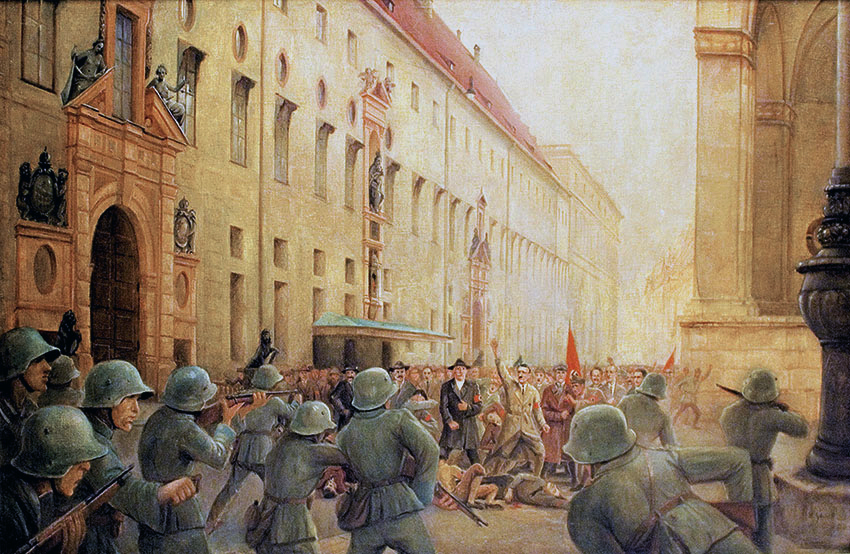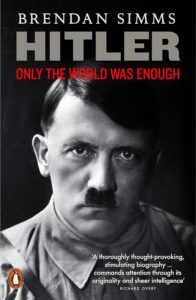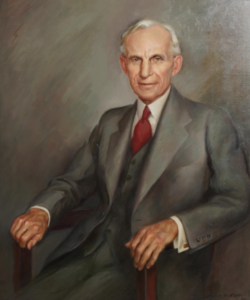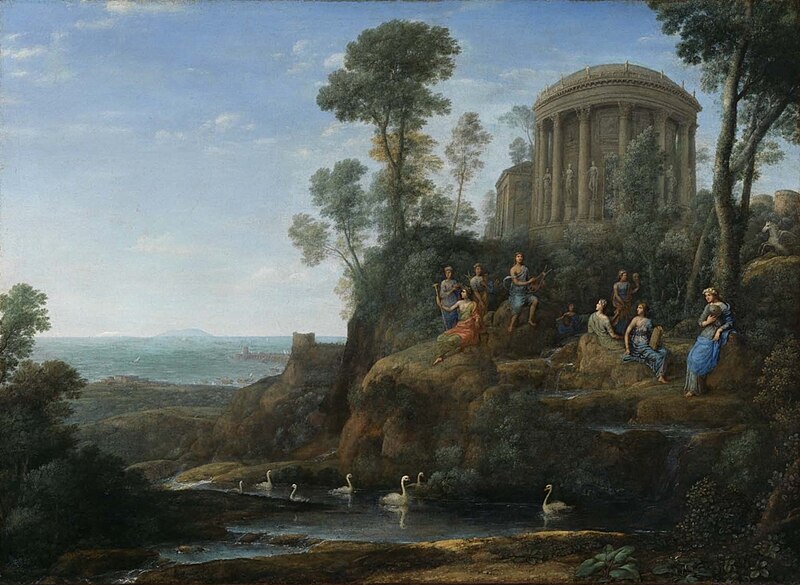and the Sun, 3

There are, to my knowledge, — unfortunately, — no records of Adolf Hitler’s childhood. And, enlightening as it surely is, the little one can gather about it from a conversation with his most sympathetic old tutor, Herr Mayrhofer, (who is still living in Leonding, near Linz, and whom I met twice) and the little he mentions himself in Mein Kampf (which is not an autobiography) is not enough to buttress such a definite (and unusual) view of him as the one put forth in the present study. The one apparently authoritative picture of the future ruler’s life and character, years before he ‘decided to become a politician,’ is to be found in the very good book in which August Kubizek — the one friend he had in early youth, — has related the story of his four years’ friendship with him, namely from 1904 to 1908.[1]
In those years — i.e., when he was over fifteen, less than nineteen, — Adolf Hitler’s main traits of character were already fixed, and visible at every step of his: in all he said or did. His scale of values was already that one which was, in later years, to set him apart from every political leader of our times. And the psychological (the real) basis of his philosophy the source of his unshakable faith in it, and the key to his whole career, — was already definite. In other words, the man he was to be — the Man he could but be, under the given circumstances, — had already taken shape and was, with the sureness of instinct, with a mysterious, inner knowledge, a logic of his own that baffled all human calculations, invincibly following the path of his tremendous destiny. And the features of the rapidly awakening personality were unmistakably those, and the unfailing, baffling logic, that, of a Man of the type I have, in this book, characterised as ‘against Time’: of an inspired, ruthless and realistic — extraordinarily far sighted — fighter for a Golden Age ideal, in the depth of our Dark Age.
And, were we able to trace the history of Adolf Hitler’s evolution further into those very early years which he describes as providing (from the standpoint of events) ‘little to remember,’[2] it is not only probable but certain that we would find, in him, up to the very beginning of his life, the self-same, deeply distinctive traits of character, the self-same fundamental aspirations — the same person. Such men as he are not, as so many people seem to think, the ‘product of circumstances,’ but predestined beings who use the given circumstances to the utmost, for a purpose which far exceeds the obvious, immediate aim of their action, or, to speak the language of ancient Wisdom, — and one is, ultimately, compelled to speak that language, — great free Souls,[3] no longer bound by the law of birth and rebirth, who choose to be born in the environment (within the race, the country, the social stratum) in which, and to grow into leading men and to struggle as such under the circumstances under which they are to act the most efficiently, in the highest interest of Creation. They are children and adolescents ‘against Time’ before leaving in history the mark of their passage as Men ‘against Time.’
One of the most noticeable traits of people ‘against Time’ — no less than of those I have described as ‘above Time’ — is that they fit nowhere in the world as it is; that their moral and aesthetic — and practical — standards: their conception of happiness and unhappiness, their idea of ‘success’ and failure, and of usefulness, in one word their values, and its, have nothing in common. And, from all that his friend A. Kubizek relates about Adolf Hitler’s adolescence in Linz, that appears precisely to have been the case of the future master of Germany, at that time a no doubt remarkably gifted but, in the estimation of cool-minded grown-ups, ‘unpractical’ youth, who had recently left the middle-school without completing the course of his studies, and nourished the ambition of becoming a great artist — a painter, or perhaps an architect — with little material prospects of fulfilling it, and who lived on his widowed mother’s meagre pension, and roamed about the streets — or the countryside — and occasionally went to the theatre (taking admittedly the cheapest seats,) and made gigantic plans and spoke — already — with compelling eloquence, — of things that interested nobody but himself, while other boys earned their living and helped their families, or were learning something ‘useful.’ ‘He just fitted into no social frame whatsoever,’ concludes A. Kubizek, after having tried to, analyse the reasons why his friend, despite capacities by far above the average, failed, even in subsequent years, to ‘get on’ professionally. ‘He had not the slightest ambition of securing himself a livelihood’ and of being comfortable. He did not wish to be ‘comfortable.’ He did not — and never was to — think in terms of comfort or of personal ‘happiness.’ What others called ‘enjoying life’ was something absolutely foreign to him. Nor could he ‘take things as they came’ and live lightly, free of worry, entirely within the present. He was, at a very early age, intensely aware that things were wrong in the world round him — wrong in every walk of life, in every domain of thought and action, from A to Z, — and he felt himself duty-bound to change them; not to change this or that in them, leaving the rest untouched, but to change them ruthlessly and radically, for they were radically wrong, and to build everything anew, according to principles different from those that had prevailed up till then.
And this was not a mere wish, a more or less vague desire or day-dream. It was a purpose that he pursued with ‘deadly seriousness’ and unfailing consistency, busying himself long before hand with the most minute details of his plans in every particular case, without for all that ever losing sight of the spirit and general lines of his creation as a whole, so much so that that ‘extraordinary seriousness’ and consistency — and merciless radicality — struck all those who knew him as the main trait of his character. He pursued it — nay, already in those years in which he was not yet politically active; already while he himself still believed that art would remain, throughout life, his first and foremost concern — with that feverish impatience which finds its expression in the words: ‘Now, or never’; with the haste inherent in all earnest action ‘against Time.’ And that impatience — that tragic awareness that ‘tomorrow will be too late’ — was to stamp his whole career as a ruler and as the Founder of the last true civilisation within the Dark Age. In it, in fact, lies the source and the explanation of Adolf Hitler’s most drastic — and most criticized — steps in later life and the sign that National Socialism, that most heroic of all reactions against our Dark Age, historically still belongs to this Age, while transcending its spirit.
______ 卐 ______
Editor’s two cents:
…he himself still believed that art would remain, throughout life, his first and foremost concern….
It is here that the gulf between us and American white nationalism becomes apparent. As far as I know, the only American racialist who sensed any of this was Michael O’Meara: who wrote that only a new myth could save us. His readers in a racialist webzine didn’t understand a whit of this, believing that only by smearing data to the normies about race realism or the JQ could one modify the Aryan collective unconscious.
That is not possible for those who know how the mind works!
To use Jungian language, it is all about ‘touching the Self.’ And the royal path toward that direction is through art. Remember how Hitler loved Wagner’s art, or how Parrish’s paintings produced, in me, the eureka moment: This is what Creation (the Big Bang) was for!
The Greco-Romans also knew that displaying the Aryan nude on public thoroughfares through majestic sculptures manifested the Self in the form of the majestic Gods.
The Anglo-Saxon racial right, children of Bentham and not of sculptors, painters or poets, has no idea that what we need is a new religion: a new myth accompanied by a new art! Precisely for this reason all anti-art is a curse for producing the new Aryan awakening, which is why I don’t listen to racialist podcasts that start with degenerate music (to her credit, Uncle Adolf’s other admirer, Carolyn Yeager, never used degenerate music at the beginning or end of her podcasts).
____________
[1] August Kubizek, Adolf Hitler, mein Jugendfround [Adolf Hitler, Friend of my Youth] (Leopold Stocker Verlag, 1953.)
[2] Mein Kampf, p. 2.
[3] In Sanskrit, Mukta Purusha.







